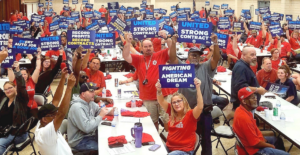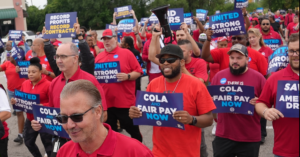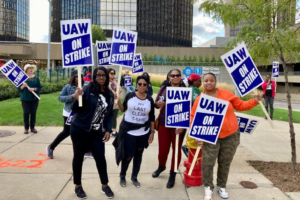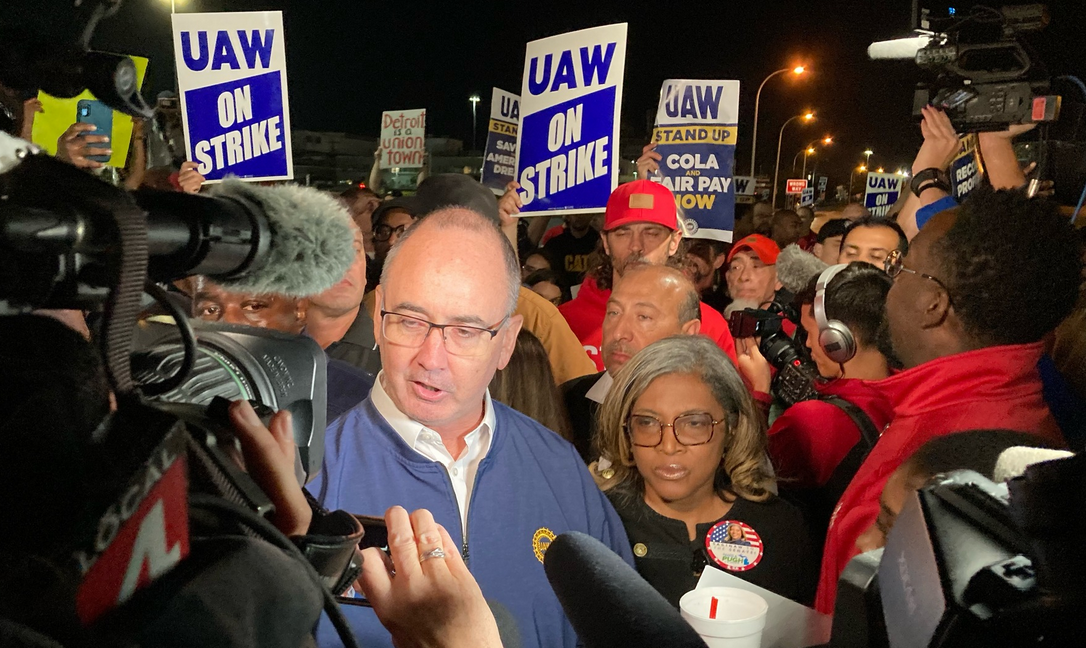Photos: Facebook
At 11:59 PM last night, the United Auto Workers contract expired with their employers at the ‘Big 3’ — Ford, General Motors, and Stellantis — who refused to meet the demands of workers negotiating for better pay and working conditions for nearly 150,000 people across the country.

The Big 3 have netted nearly a quarter trillion dollars in profit over the last decade. On average, the Big 3 CEOs have given themselves raises of 40%, but UAW wages have only increased by 6%.
Contract negotiations are still underway, but the UAW are officially on strike at all 3 automakers for the first time in the union’s history. The time to stand with United Auto Workers is now. Moral and political support is truly significant.

Here’s a little background on how we got here, what’s happening now, and what could be next:
- What UAW members are asking for in the new contracts: to start with, a 40% increase in pay – in line with the average salary growth of top executives at the Big 3. Other proposals include improved retiree benefits, cost of living adjustments, and protections for part-time and temporary workers.
- Each of the Big 3 are negotiating with UAW separately. Each has only agreed to a 20% wage increase — or half of the 40% proposal — and each has flat out rejected many of the other proposals, including the end of a tiered wage system and restoration of pensions.
- The UAW started a limited ‘stand up strike’ last night with the goal of increasing pressure on the contract negotiations. About 13,000 UAW union members walked off the job at 3 strategic locations when the contract expired last night: a Ford assembly plant in Wayne, MI that makes Ranger trucks and Bronco SUV’s; a General Motors plant in Wentzville, MO that makes Chevrolet trucks and Express vans; and a Stellantis plant in Toledo, OH that builds Jeep Wranglers and Gladiators.
- The strikes will broaden to all 150,000 autoworkers if negotiations do not improve. An immediate increase on car prices is not expected, but the union is responsible for making over half of the light vehicles built in the U.S. — so a longer strike could impact suppliers and other businesses, given the auto industry’s role in national manufacturing.

“We’re living in a time of stunning inequality throughout our society,” UAW President Shawn Fain said. “We’re living in a time where our industry is undergoing massive transformations, and we’re living in a time where our labor movement is redefining itself.”
Team AOC stands in solidarity with the United Auto Workers, both for the good of the union and for the working class.



















